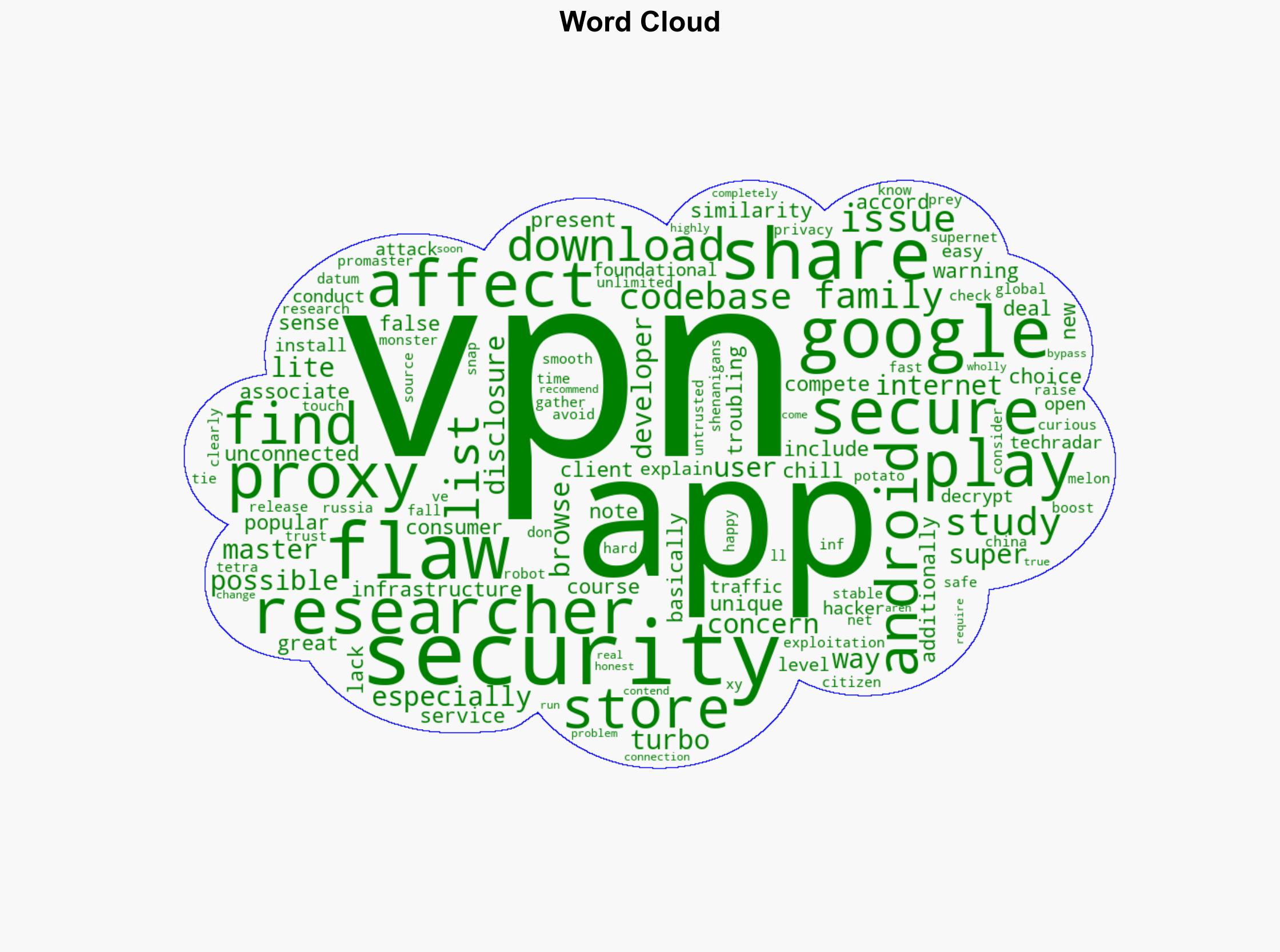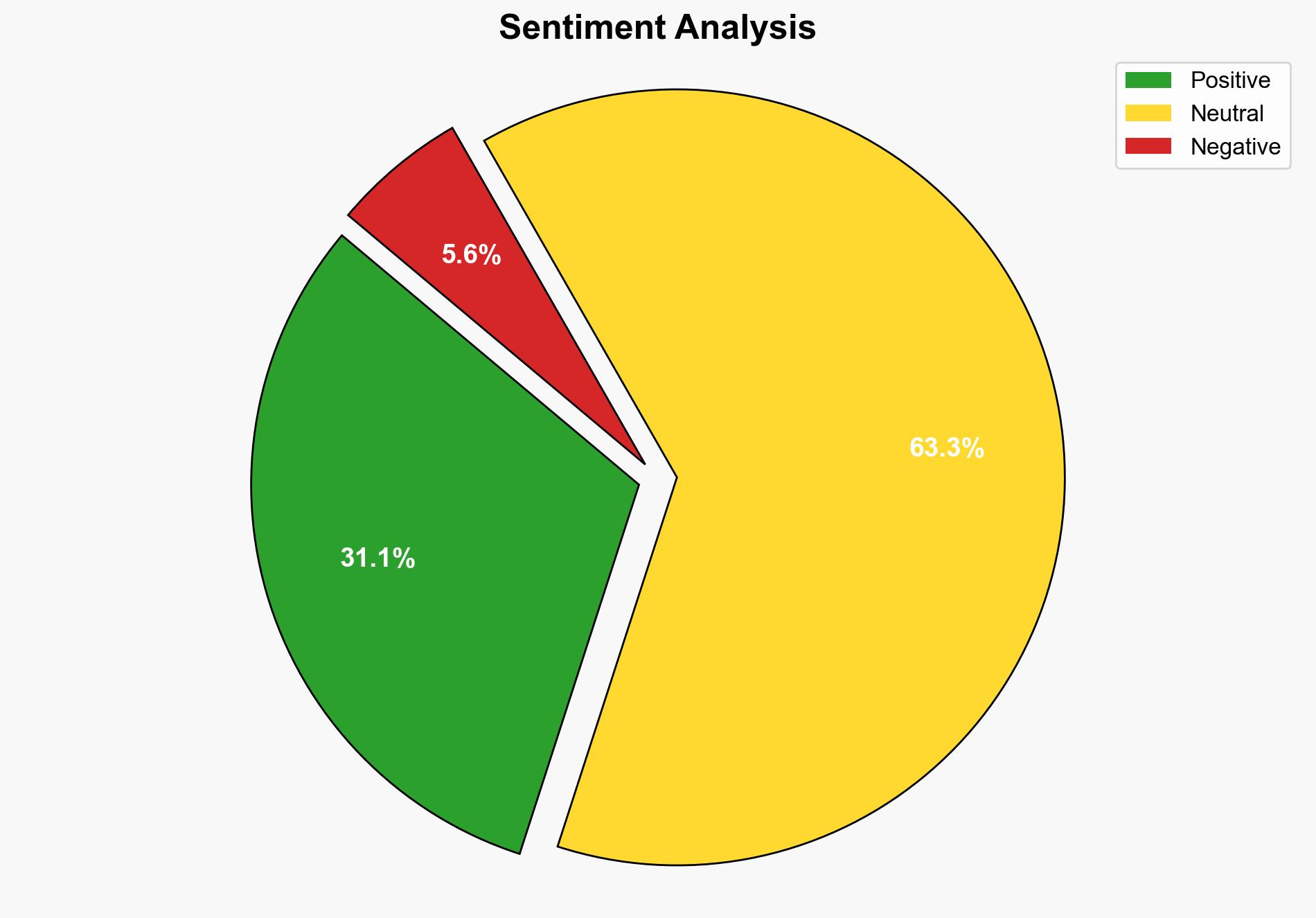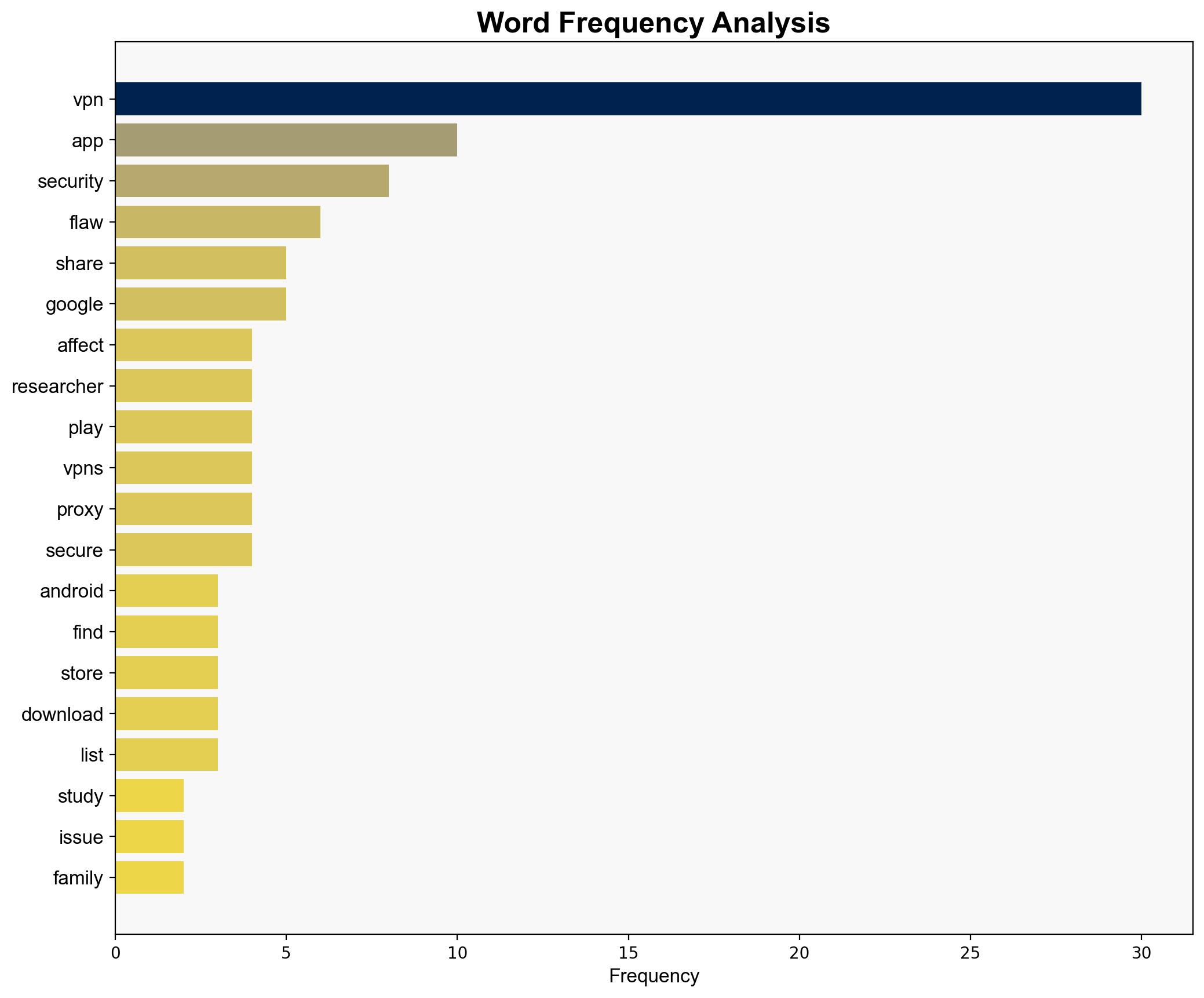Over 20 Popular Android VPN Apps Share The Same Security Flaws – See If You’re Affected – BGR
Published on: 2025-09-03
Intelligence Report: Over 20 Popular Android VPN Apps Share The Same Security Flaws – See If You’re Affected – BGR
1. BLUF (Bottom Line Up Front)
The most supported hypothesis is that the shared security flaws among over 20 popular Android VPN apps are due to a common underlying codebase and infrastructure, potentially linked to entities in Russia and China. This presents a significant cybersecurity risk, particularly concerning data privacy and national security. Confidence level: High. Recommended action: Immediate review and regulation of VPN apps on Google Play, with a focus on transparency and security standards.
2. Competing Hypotheses
1. **Common Codebase Hypothesis**: The security flaws are due to a shared codebase and infrastructure among these VPN apps, possibly indicating a coordinated effort by developers to minimize costs or maximize control, potentially linked to foreign entities.
2. **Negligence Hypothesis**: The security flaws result from widespread negligence or lack of expertise among developers, leading to similar vulnerabilities across different apps without any malicious intent or coordination.
Using the Analysis of Competing Hypotheses (ACH) 2.0, the Common Codebase Hypothesis is better supported due to the identified ties to Russia and China and the shared infrastructure, which suggests a deliberate design choice rather than coincidental negligence.
3. Key Assumptions and Red Flags
– **Assumptions**: The assumption that shared codebase inherently indicates malicious intent could be biased without direct evidence of coordination. It is also assumed that all apps sharing vulnerabilities are equally risky.
– **Red Flags**: The lack of transparency and disclosure by developers raises concerns. The connection to Russia and China is a critical red flag, suggesting potential geopolitical motivations.
– **Blind Spots**: The analysis may overlook legitimate reasons for shared codebases, such as open-source practices or industry standards.
4. Implications and Strategic Risks
The shared vulnerabilities pose a risk of data interception and unauthorized access, potentially affecting millions of users. This could lead to economic losses, compromised personal and corporate data, and increased vulnerability to cyberattacks. Geopolitically, the ties to Russia and China could escalate tensions, particularly if state-sponsored activities are suspected.
5. Recommendations and Outlook
- **Immediate Action**: Conduct a comprehensive security audit of the affected VPN apps and enforce stricter security standards on Google Play.
- **Regulatory Measures**: Implement mandatory disclosure of codebase origins and affiliations for all VPN apps.
- **Public Awareness**: Launch a campaign to educate users on the risks of using unverified VPN apps.
- **Scenario Projections**:
– **Best Case**: Enhanced security measures lead to improved app safety and user trust.
– **Worst Case**: Continued vulnerabilities result in significant data breaches and geopolitical tensions.
– **Most Likely**: Incremental improvements in app security with ongoing scrutiny of foreign-linked apps.
6. Key Individuals and Entities
Specific individuals are not named in the source. Entities of interest include the developers of the affected VPN apps and potential links to Russian and Chinese organizations.
7. Thematic Tags
national security threats, cybersecurity, counter-terrorism, regional focus





